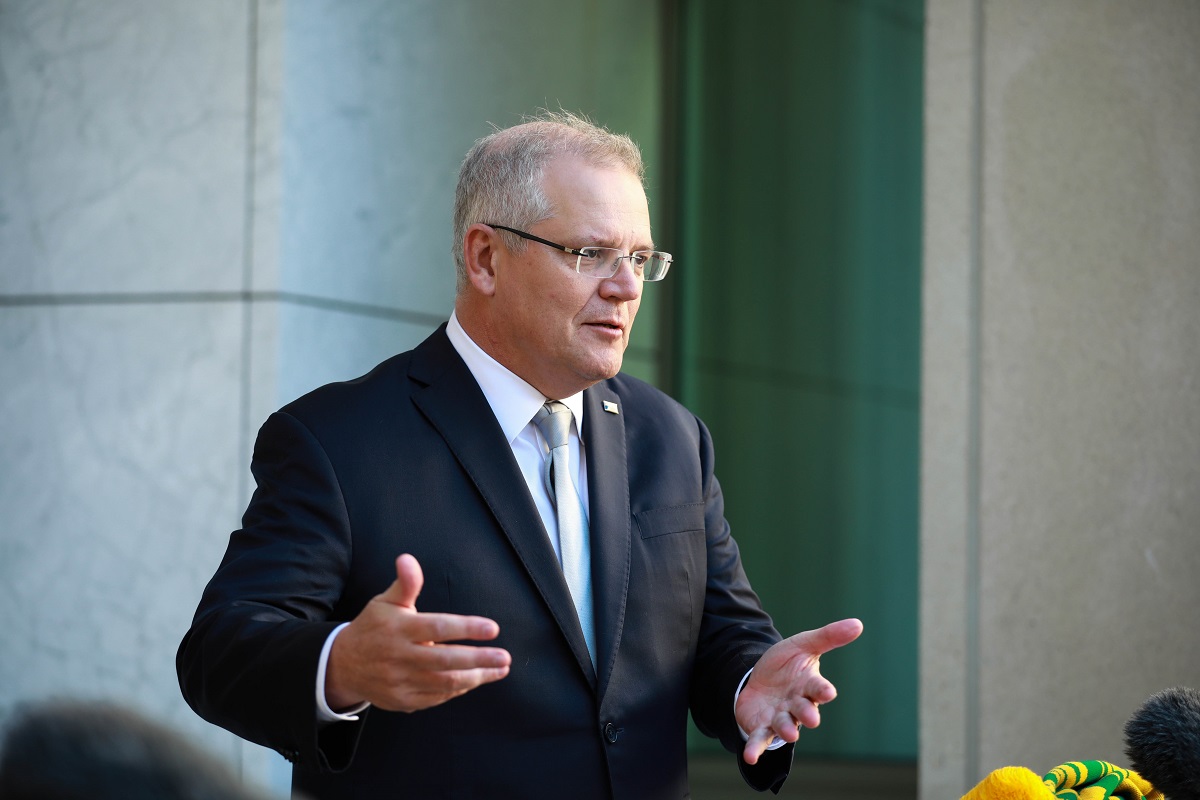AI models by Google, Nvidia can predict path, intensity of major storms: Study
To investigate this, the researchers analysed November 2023's Storm Ciaran which hit northern and central Europe.
Prime Minister Scott Morrison is currently legislating through the Australian parliament the News Platforms and Digital Media Mandatory Bargaining Code Bill which tries to level the playing field by ensuring that social media behemoths such as Facebook, Google, and others are not the sole big beneficiaries of the advertising revenue which the content they aggregate and push through on their platforms attracts while the media companies which have spent money, time, and effort on creating original content get shortchanged.

Australia Prime Minister Scott Morrison (Photo: IANS)
Money for nothing and news for free. That, to tweak the lyrics of the Dire Straits’ hit, sums up the approach of tech giants that aggregate content from media platforms but pay the content creators all of nothing. Trust the Australians, then, to get aggressive and try and do something about it.
Prime Minister Scott Morrison is currently legislating through the Australian parliament the News Platforms and Digital Media Mandatory Bargaining Code Bill which tries to level the playing field by ensuring that social media behemoths such as Facebook, Google, and others are not the sole big beneficiaries of the advertising revenue which the content they aggregate and push through on their platforms attracts while the media companies which have spent money, time, and effort on creating original content get shortchanged.
The latest estimates show that Google and Facebook account for well over 70 per cent of online advertising revenue across most geographies with Amazon beginning to make its move at least in the US market where it now rakes in approximately 10 per cent of this revenue. Big tech has long argued that they are actually helping professional media ~ often referred to as a ‘sunset industry’ ~ stay relevant by directing readers, or ‘content consumers’ if one prefers using that despicable term as some unfortunately do, to their websites.
Advertisement
Media platforms, while accepting this is true, point out that it’s no substitute for a revenue stream. Platitudinous sages usually comfortably ensconced in tenure-protected academia have observed that media companies need to work out a revenue stream keeping this new reality in mind given that the disruption caused by technology is here to stay and state intervention as a palliative just won’t cut it in the long run.
This, then, is the lay of the land as Prime Minister Narendra Modi is being urged by major news media outlets in India to follow the Australian example. The irony seems lost on these vocal and powerful organisations that tech majors are only doing unto them what they did unto others by the so-called disruption they were leaders in engendering in the 1990s when paid subscription, initially in print and later for television and online platforms, was made irrelevant as these media firms pivoted their businesses towards making advertising revenue their only source of income and in the process became beholden to advertisers. What that did to the diversity and authenticity of content is a discussion for elsewhere; suffice it to say it certainly wasn’t pretty.
But now that their bottom line is impacted, the pressure on the government to ‘do something’ is only likely to increase going forward. It is now being argued that between global big tech and advertisement- revenue beholden Indian media firms the latter are the lesser of the two evils. Perhaps. The government, however, would do well to take a cue from
Advertisement